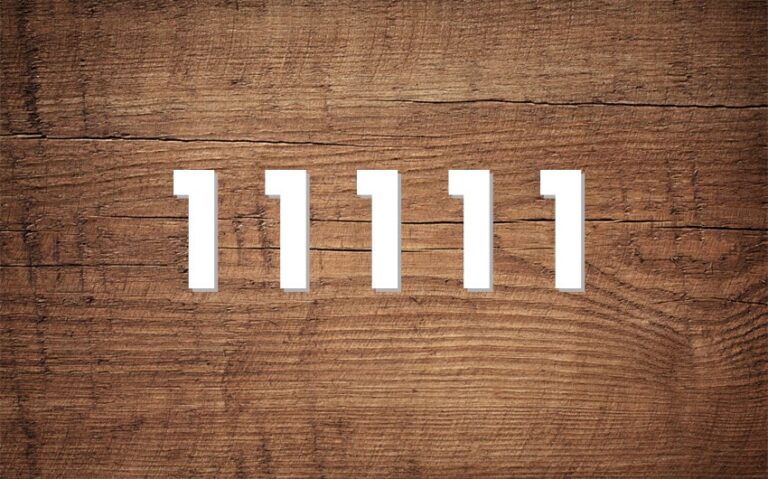What Does the Number 10 Mean Spiritually: 5 Ideas
Numbers often hold deep symbolic meanings across various spiritual beliefs, offering guidance, insight, and a sense of connection to something greater. Among these, the number 10 stands out as a symbol of completeness, new beginnings, and divine order.
If you’ve found yourself wondering, “What does the number 10 mean spiritually?”, you’re not alone—many are drawn to its unique significance. In this article, we’ll explore the spiritual meanings behind the number 10, its role in cultural and religious contexts, and why it’s often seen as a symbol of perfection and balance. Let’s uncover the deeper message this number holds.
Spiritual Meanings of the Number 10
The number 10 carries significant spiritual symbolism across various traditions, representing themes of completion, balance, and divine order. It is often seen as a number that marks both the end of a cycle and the beginning of something new, embodying a sense of wholeness and transformation. Here are the key spiritual meanings associated with the number 10:
1. Completion and Perfection
The number 10 is frequently viewed as a symbol of perfection and completion. It represents the culmination of one phase and the readiness to embark on another.
This idea stems from its position in counting systems, where 10 concludes the single-digit numbers before transitioning to double digits. Spiritually, it suggests that a person has achieved a certain level of understanding or growth and is ready for a fresh start.
For example, in tarot, the number 10 is associated with the Wheel of Fortune card, symbolizing cycles, changes, and the idea that life is always moving forward. It reflects the spiritual concept that endings often pave the way for new beginnings.
2. Divine Order and Universal Law
Spiritually, the number 10 is connected to divine order and universal balance. The number 1 represents individuality, leadership, and the start of a journey, while 0 symbolizes infinity, eternity, and the connection to the divine. Together, they create a harmonious balance between the material and spiritual realms.
This balance is reflected in many spiritual practices, where 10 is associated with the structure of the universe, such as the Ten Commandments in Christianity or the concept of dharma in Hinduism, which emphasizes living in alignment with universal laws.
3. Unity and Duality
The number 10 brings together the duality of 1 and 0, symbolizing the unity of opposites. The number 1 represents the individual, self-expression, and initiative, while 0 embodies the infinite, collective, and divine energy. Spiritually, this pairing suggests that while we are individuals, we are also part of a greater whole.
This duality is often seen in spiritual practices that focus on finding balance—whether between action and reflection, material and spiritual pursuits, or individuality and community. The number 10 reminds us that both aspects are essential for a complete and fulfilling journey.
4. Creation and Manifestation
In many spiritual traditions, the number 10 is associated with the power of creation and manifestation. It represents the ability to turn ideas into reality, combining the initiating energy of 1 with the boundless potential of 0.
Spiritually, seeing the number 10 can be a sign to focus on your goals, trust in your abilities, and align your actions with your higher purpose.
This meaning is often tied to practices like visualization and affirmation, where 10 is seen as a number of empowerment, reminding you that you have the tools to create the life you desire.
5. Renewal and Transformation
The number 10 marks the end of one phase and the beginning of another, symbolizing transformation and growth. It encourages letting go of old patterns, embracing change, and stepping into a new chapter with confidence. Spiritually, this number is a reminder that renewal is a natural and necessary part of life’s journey.
The Number 10 in Cultural and Religious Contexts
The number 10 holds significant spiritual and symbolic meaning across various cultures and religions, representing divine order, completion, and balance. Here’s how it is interpreted in different traditions:
1. Christianity: Moral Foundations and Divine Authority
In Christianity, the Ten Commandments serve as the cornerstone of moral and spiritual guidance, symbolizing completeness and divine order. The ten plagues of Egypt further demonstrate God’s authority and power, underscoring the importance of the number in biblical narratives.
2. Hinduism: Cosmic Cycles and Balance
The number 10 in Hinduism reflects cycles of creation and universal harmony.
- The Dashavatara (ten avatars of Vishnu) represent divine intervention to restore balance across cosmic phases.
- It also symbolizes the ten directions, highlighting the infinite nature of the universe and the need for equilibrium.
3. Ancient Egypt: Unity and Creation
In Ancient Egypt, the number 10 symbolized unity and the entirety of creation.
- It represented the sum of 1 (creator) and 9 (all created things), signifying completeness.
- Egyptians incorporated the number into sacred geometry, emphasizing balance and harmony in design.
4. Judaism: Creation and Spiritual Structure
In Judaism, the number 10 is associated with divine order and creation.
- The Ten Commandments represent a complete moral code.
- The ten utterances by which God created the world in Genesis highlight the intentionality and completeness of creation.
- The ten sefirot in Kabbalah represent God’s attributes and connection to the physical world.
5. Islam: Sacred Practices and Rewards
In Islam, the number 10 is tied to acts of devotion and blessings.
- The ten days of Dhul-Hijjah are a sacred period for worship and pilgrimage.
- The tenfold reward for acts of charity underscores the importance of generosity and faith.
6. Chinese Philosophy: Harmony and Perfection
In Chinese culture, 10 represents balance and completeness.
- In the I Ching, it marks the culmination of yin and yang cycles, symbolizing harmony.
- It is also significant in the heavenly stems used in the Chinese calendar, denoting cosmic order.









